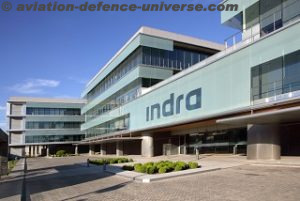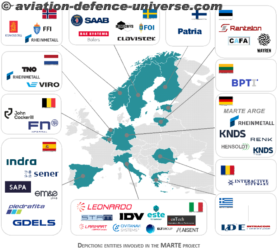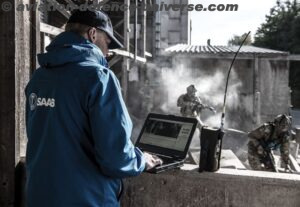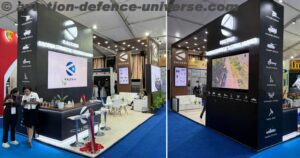- In 2023, Indra has expanded the scope of its global ISO 9001 certification with the incorporation of new international subsidiaries into its Quality Management System.
 Madrid. 28 August 2023. Indra, a leading global technology and consulting company, has renewed its ISO 9001 Quality Management System certification, one of the world’s best-known quality certifications.
Madrid. 28 August 2023. Indra, a leading global technology and consulting company, has renewed its ISO 9001 Quality Management System certification, one of the world’s best-known quality certifications.
Nicolás Henríquez, AENOR’s Business Development Director, presented this certificate to Mª Teresa Atienza, Indra’s Head of Organization and Corporate Quality.
The evaluation carried out by AENOR certifies that Indra complies with the requirements established by the ISO 9001 standard and acknowledges its extremely high degree of implementation within the organization, as well as the high degree of commitment of the personnel in the teams of the different subsidiaries included in the scope of the certification. Moreover, the different initiatives undertaken over the past year have made the processes more efficient and allowed the company to make further progress in its continuous improvement.
This year, Indra has expanded the scope of its global ISO 9001 certification with the incorporation of new international subsidiaries into its Quality Management System, including Nexus Payment Systems, SpA in Chile, Consultoría Organizacional S.A.S. in Colombia and Indra Sistemas, S.A. Saudi Arabia Branch.
In this regard, the certification currently covers a total of 49 Indra group companies in 17 countries, and more than 29,000 professionals.
As a result, Indra’s Quality Management System is globally implemented in Saudi Arabia, Argentina, Australia, Brazil, Chile, Colombia, Spain, the United States, the Philippines, Italy, Mexico, Panama, Peru, Portugal, the United Kingdom and Uruguay. Indra has a single, homogeneous and integrated system that ensures an appropriate level of quality in each of the projects and operations it develops, as well as the best adaptation and response to customer expectations, especially those of large companies with global operations.
The ISO 9001 standard demonstrates a company’s ability to meet the needs of its customers. There are three main benefits: it improves processes and reduces the costs (including direct monetary ones) of “non-quality”, it secures greater engagement among the professionals when they do a job well done in a sustainable manner, and it also leads to greater conviction regarding the transmission of the commitment to quality to all the audiences of an organization.
As a result of this process, AENOR has highlighted the degree of involvement of the Senior Management in the Quality Management, the risk management, the focus on continuous improvement and aspects that are particularly relevant due to the high degree of geographical dispersion of the teams, such as the plan for internal and external Quality audits, the high degree of project monitoring, the progress in the measurement of non-quality costs, the robust management of internal incidents and the compilation and valorization of the lessons learned from the projects and areas




























































































































